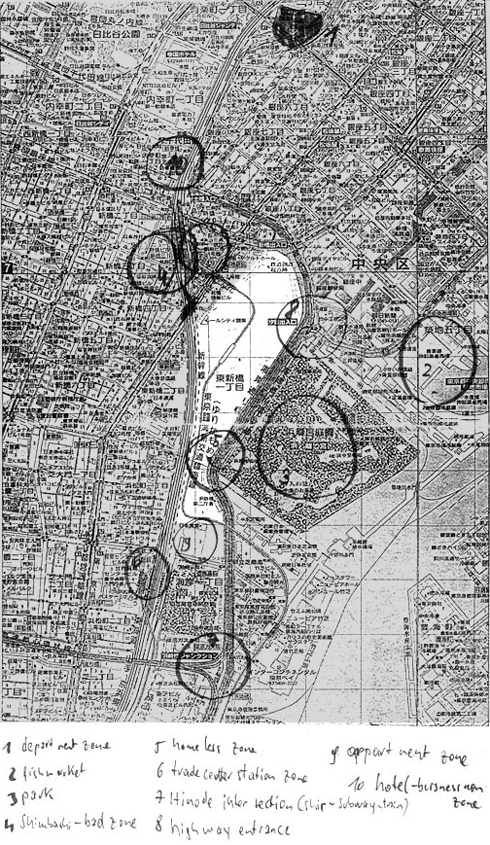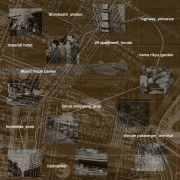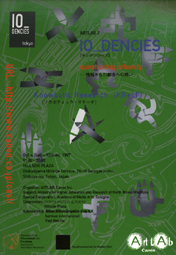
IO_dencies locates urbanity in a field generated by city inhabitants and by the city itself as an emancipated partner. Non-hierachical electronic networks provide experimental fields for other ways of collaborative/ connective ways of dealing with urban forces. Utopia is not the construction of a new city, utopia is the movement towards the potential of working together with the complexity of an existing big city in order to develop new forms of urban agencies. This project explores the possibilities of intervening and acting in complex urban processes taking place in distributed and translocal environments. The project creates a topological cut through the heterogeneous assemblage of physical spaces, data environments, urban imaginations, connective agencies and individual experiences, and forms a model for the complex way in which network topologies will have to be questioned.
selcted parts of tokyo
1997
This japanese map shows rough the 10 selected parts (Urban Profiles) around Shimbashi Area which builded the resources for the analysed urban profiles
Around the selected Shimbashi Areal there are defined the following specific intensive urban zones: 1. Ginza Shopping Area 2. Imperial Hotel 3. Fish Market 4. Highway Entrance 5. Hama-Rikyu Park 6. Homeless Area 7. Shimbashi Station 8. Hinode Passenger Terminal 9. JR-Appartment Houses 10. World Trade Center Building
here is an other version:

